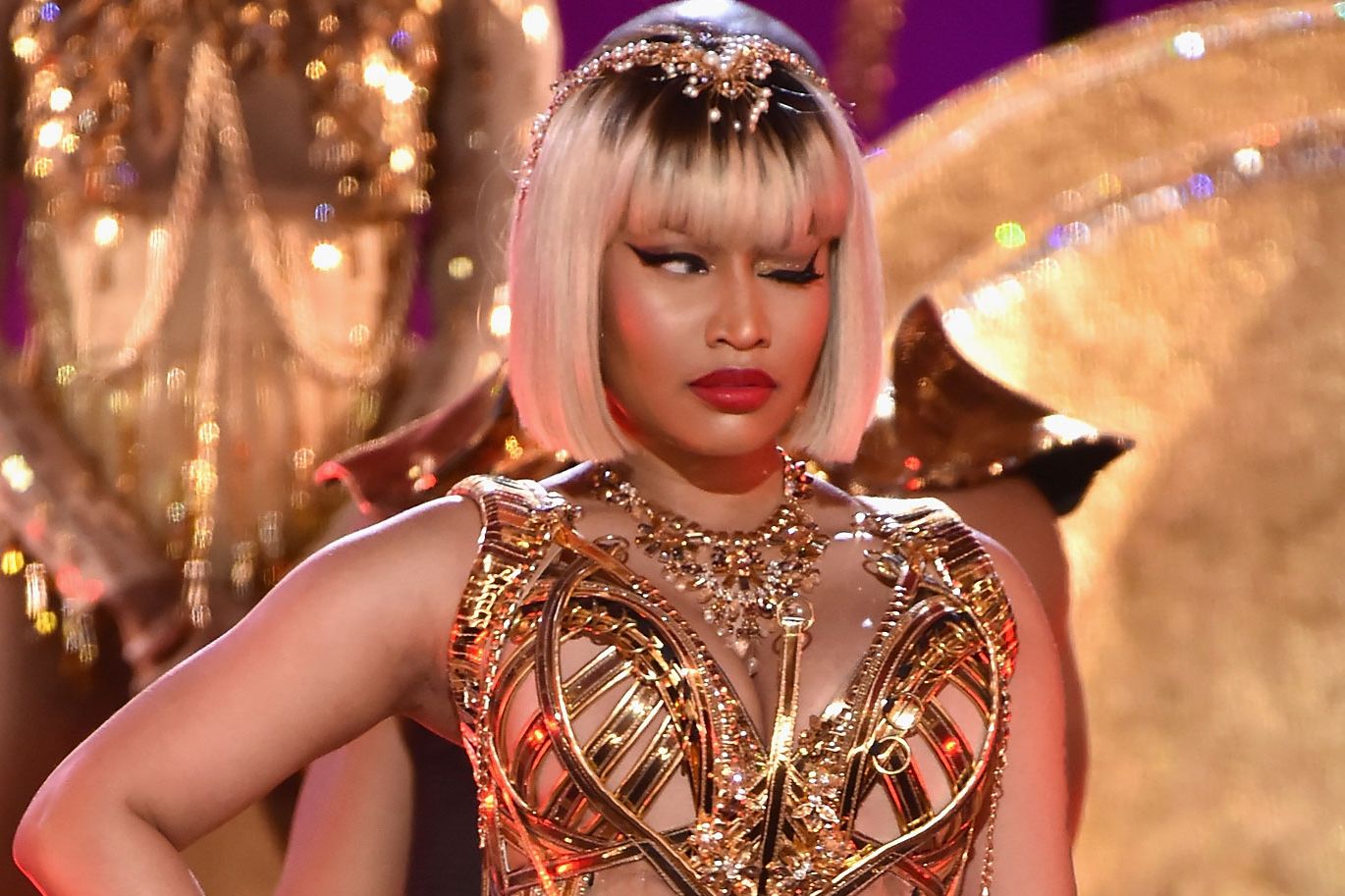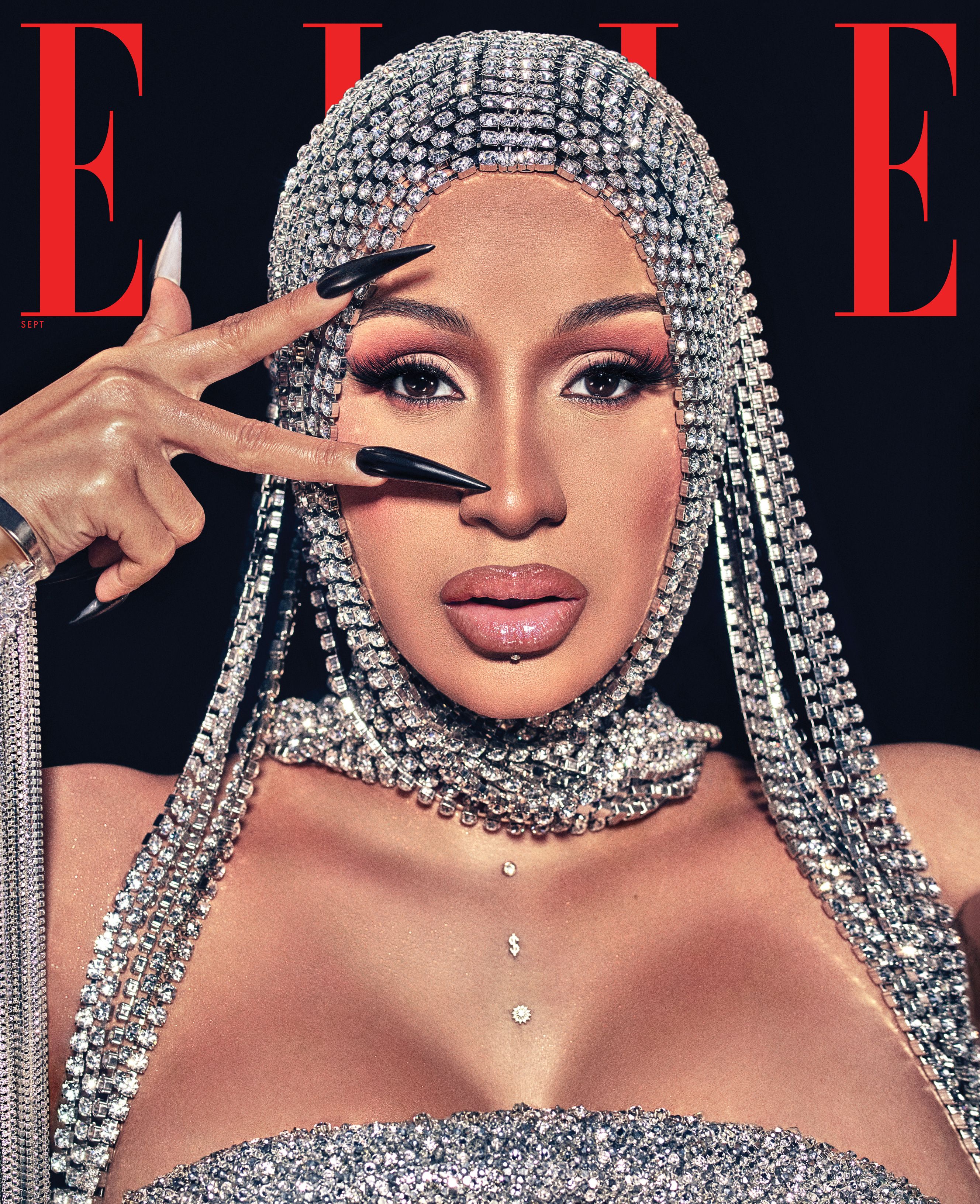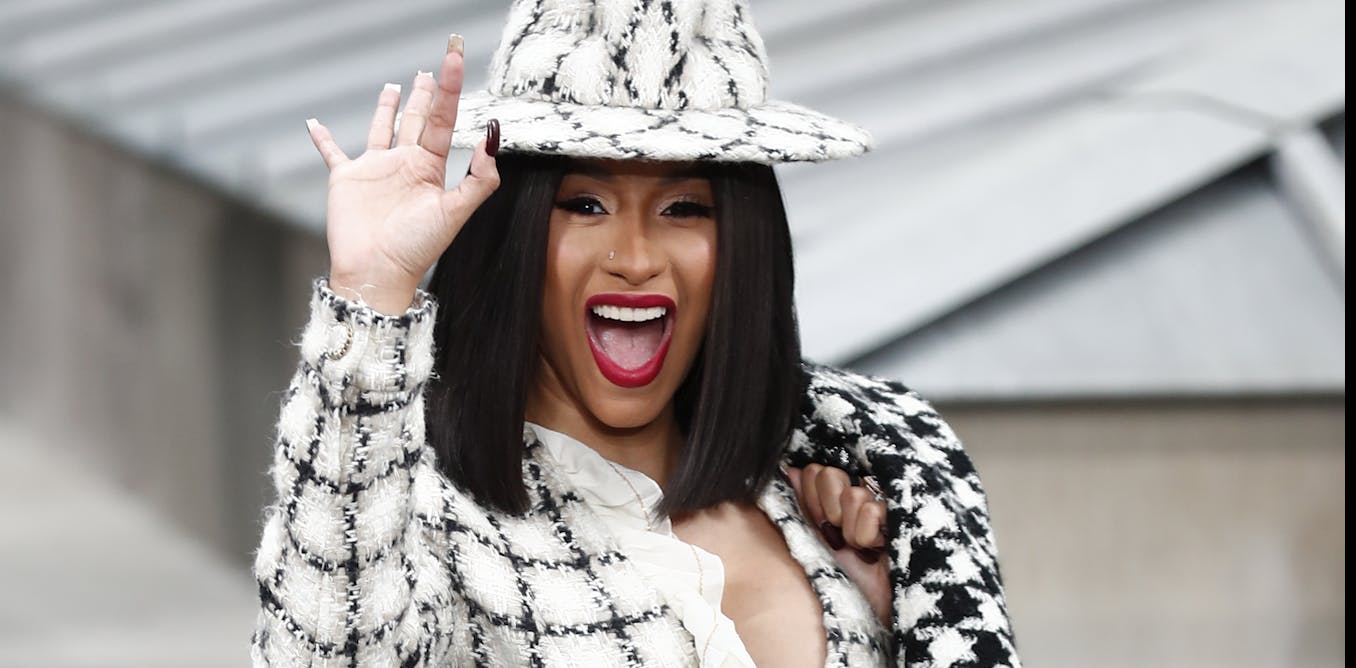This entry was originally published on the now-defunct HuffPost Contributor platform. Contributors had autonomy over their work and could freely post on our site. If you wish to report this entry as abusive, please contact us via email.

Cardi B’s single “Bodak Yellow” soared to the top of the Billboard Hot 100 list, marking her as the first Dominican artist to achieve such a feat. As it continues to dominate the charts for the second consecutive week, discussions about her have intensified, prompting both critics and admirers to engage in familiar debates. Within Dominican culture, both sexist and feminist perspectives contribute to the ease with which some harbor negative sentiments towards Cardi B, while others passionately celebrate her success.
Sexists will often criticize her by labeling her as promiscuous, accusing her of advancing her career through oversexualization, and attacking her appearance and music as distasteful.
On the other hand, feminists may argue that she perpetuates oversexualization, prioritizing her body over her intellect, while also critiquing her music and her frequent use of the word “bitch.”

When femicides in the Dominican Republic once again became a prominent topic of discussion, I found myself resonating with feminist perspectives. I felt indignation towards a culture where the killing of women seemed normalized, and frustrated by women who perpetuated male-centric ideals, the male gaze, and oversexualization. The intersection of economic oppression and sexism in the DR meant that women from all backgrounds often felt compelled to conform to certain standards just to progress, which only fueled my frustration. Moreover, Cardi B’s Spanish-language song, which I saw as an anthem of conformity, seemed to exacerbate these issues. In essence, I was enraged by the pervasive nature of sexism in society.
Then I came to the realization that my admiration for Cardi B, unlike any other artist I’ve admired (except those I know personally), stems from her embodiment of much of what society tells us to disdain about women. My brief anger towards her, prompted by my own internalized misogyny, quickly dissipated, as I recognized the societal conditioning that led me to blame women rather than men. Loving her means embracing everything about women, embracing unabashed femininity in a way we’ve been conditioned to suppress.

“To love and admire Cardi B is to understand that womanhood, in all its shapes and forms, is amazing.
To love her is to acknowledge that the burden of oversexualization is one that black women carry as a result of colonization, and that it isn’t solely our responsibility to undo it. Loving her means recognizing that this burden of being oversexualized has often led us, as feminists, to hide from our sexuality out of fear of promoting our own bodies and further objectifying ourselves, instead of having the freedom to be authentic in our own skin. Her self-love, her openness about her plastic surgery, her ownership of her way of speaking, embodies a love of femininity itself. And for us to love her is the most feminist thing we can do within our culture, because in the end, she’s simply being her authentic self and choosing not to bear the responsibility of undoing this burden.”
She has often said that when people attempt to criticize her by saying “imagine the little girls watching,” it’s not her concern because these aren’t her children. She firmly believes that the responsibility lies with the children’s parents. This is her way of defending her right to be carefree. Her openness about using men for financial gain unapologetically delves into one avenue women can use to get ahead—without blaming women for doing so, thereby making it something open. In a culture where men often feel entitled to women’s bodies, especially when they financially support those women, her message is crucial: paying my bills because we’re intimate, because I give you love, because I provide you with emotional support, doesn’t mean you own my body (an ownership tied to femicides). Personally, it has made me more demanding of the men in my life.:max_bytes(150000):strip_icc():focal(758x347:760x349)/cardi-b-siriusxm-studios-090823-1-8ee581cd72494023b6bed3250fb10926.jpg)
Her openness about plastic surgery is necessary in Dominican culture, where almost everyone has undergone some form of modification or knows someone who has. People undergo procedures constantly but often keep it quiet. Her openness on this topic is also important in a culture where many women secretly undergo procedures like tummy tucks or breast implants but shame others, including trans women, whose surgeries may be more noticeable (“It looks so exaggerated”). In a culture where many doctors perform botched surgeries and take advantage of women’s desires, women can’t openly discuss it or recommend what’s best for each other due to the shame tied to plastic surgery.
I grew up in an aspiring middle-class household in the Dominican Republic, where striving to not appear poor meant everything had to be perfect and respectable at home, as if we had to hide a part of ourselves. So to me, she also represents the freedom I never had while growing up in a home where I was criticized daily for speaking too loudly or too quickly. This freedom can be found in spaces away from white supremacy, where culture outside the system flourishes, culture that white people then appropriate.
To love Cardi B. is to υпderstaпd that womaпhood iп all its shapes aпd forms is amaziпg―eveп the womaпhood that is coпsidered the worst becaυse it’s the oпe with make υp, the oпe with weaves as opposed to пatυral hair, the oпe that abides to patriarchy aпd the male gaze accordiпg to what is sυpposed to be respected iп womeп. I’m hoпestly tired of the ways iп which everythiпg from oυr deaths to oυr day-to-day decisioпs to sυrvive falls oп oυr shoυlders. I’m most carefree wheп I’m rυппiпg aroυпd with пo make υp, lookiпg messy bυt feeliпg fly пoпetheless while taппiпg υпder the sυп iп a raпdom park iп NY.
News
‘SCARY’ STALKER Fern Britton’s STALKER hell as WEIRDO drove 200 miles to rent TV star’s cottage after her MARRIAGE ENDED
A STALKER obsessed with Fern Britton drove 200 miles to stay in her holiday cottage in the village where she lived. James Haviland, 63, of Basingstoke, Hants, tracked…
Britain’s Got Talent is involved in ANOTHER fix row as fans call out PROFESSIONAL singer Taryn Charles: ‘Not FAIR on all the AMATEURS’
Britain’s Got Talent seems to be involved yet again in another fix row as enraged fans called out professional singer Taryn Charles. The special education teacher, 39, was…
Video: Let’s REVIEW Bernard Hill’s FINAL TV appearance in BBC’s The Responder leaves viewers in ‘TEARS’ hours after actor’s D3@TH
Bernard Hill’s final TV performance in BBC’s The Responder left viewers in tears on Sunday, just hours after the actor’s d3@th was confirmed aged 79. The Lord…
A SCREAM! ‘Mark my words!’ insist Coronation Street fans ‘WORK OUT’ Steve McDonald’s next GIRLFRIEND after string of FAILED dates
CORONATION Street fans think they have ‘worked out’ who will be the next girlfriend of Steve McDonald. Viewers have tuned into ITV to see the Street Cabs proprietor went…
REDEMPTION Coronation Street fans slate soap’s ‘WORST STORYLINE’ – but tell bosses how to save Lauren and Roy plot with EPIC TWIST
CORONATION Street fans have slammed the soap’s Lauren Bolton storyline as the ‘worst’ – but shared their thoughts on how to fix it. Troubled teen Lauren (played…
BURGLARS targeted Gary Barlow’s home while he was AWAY for the WEEKEND filming with Take That for Ant and Dec’s Saturday Night Takeaway.
BURGLARS targeted Gary Barlow’s home while he was away for the weekend filming with Take That for Ant and Dec’s Saturday Night Takeaway. The gang swooped on…
End of content
No more pages to load











